Supplying our fresh food future
8 October 2024
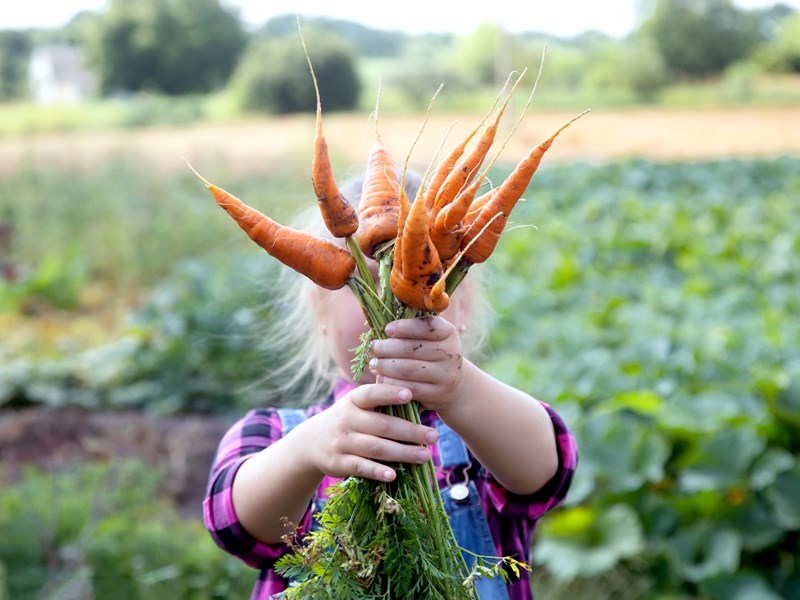
A growing population requires more fresh food. And whilst that fact on its own is simple enough, the question of whether our state’s food supply is secure is not so straightforward.
Over the past decade, Victoria’s population has increased by 17% and is anticipated to grow to upwards of 10 million by the year 2051.
Because of this, residential properties are being pushed further out from the CBD, and land traditionally used to supply the food needs of Victoria is now being lost.
Department of Planning statistics show that an area 36 times the size of Melbourne’s CBD has been rezoned from agricultural to urban land use in the past decade.
The capacity of Melbourne’s foodbowl to meet the demand for Greater Melbourne’s food needs could fall from around 41% in 2015 to 18% by the time the city reaches a population of 7 million, according to studies conducted by the Foodprint Melbourne research project at the University of Melbourne.
Statistics and trends such as this were one of the driving factors behind the current public inquiry into securing Victoria’s food supply being conducted by the Legislative Assembly Environment and Planning Committee.
For Committee Chair Juliana Addison the threat to Victoria’s food supply is an important consideration within the cost-of-living crisis.
‘We're talking a lot about challenges to cost of living and everything like that,’ Addison said. ‘Where does food supply and urban sprawl play into this?’
Investigating the relationship between cost of living and the state's food supply led the Committee to examine the ongoing trend of urban sprawl and its impacts on farmland and farming practices in the state.
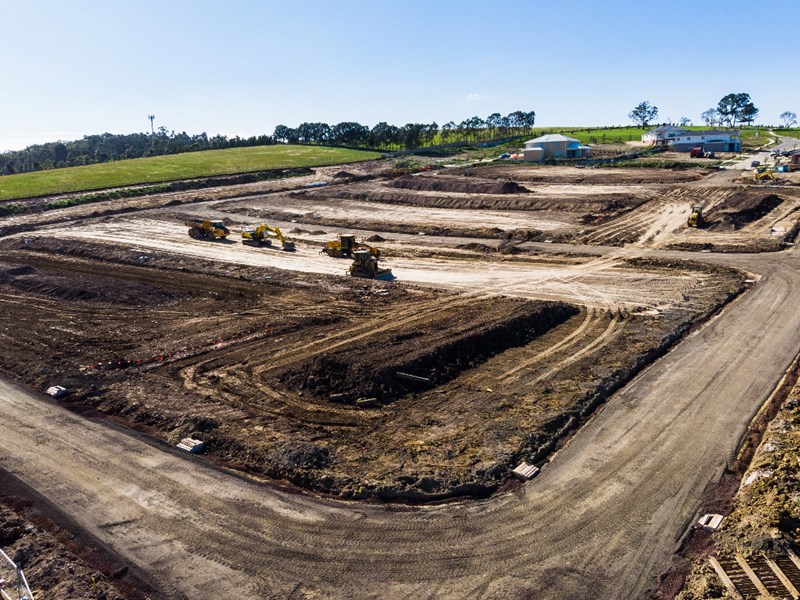
A few key questions are guiding the Committee in its investigation, Addison noted.
‘What role does securing our food supply play in the broader economic fortunes of the state? And what could we do to ensure that our arable farmland is able to produce food for Victoria well into the future?’
A Wendouree local and now its MP in the Legislative Assembly, Addison has her own personal reflections on the changing landscape of regional areas.
‘Mum and dad built their house in Ballarat, and so I grew up with paddocks all around me,’ she said. ‘Kids at my primary school came from the farms. They'd walk across the paddocks. All of those paddocks are now houses.’
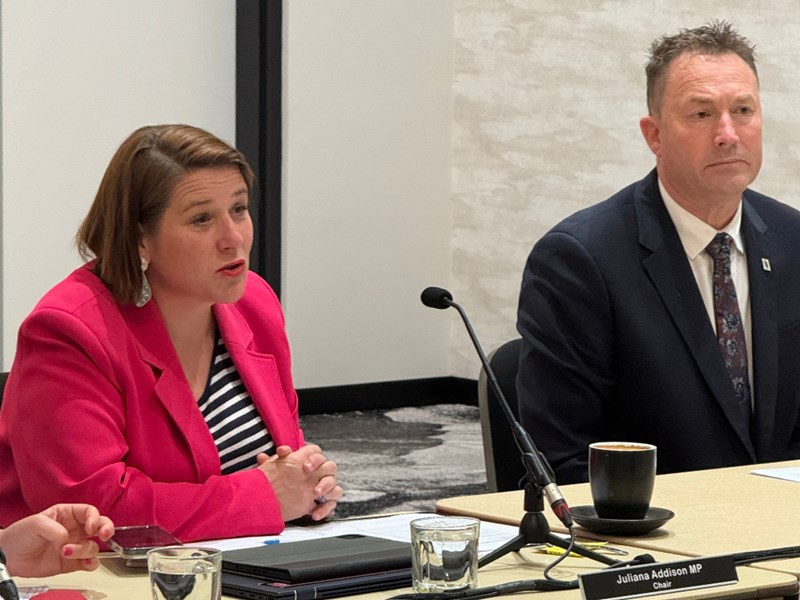
Although able to use her past as a reference, Addison emphasises the importance of looking toward the future.
‘We really need to be thinking about how do we future-proof our food supply,’ she said.
‘What happens if we build all of these new housing estates on really important arable land? What does that mean in terms of the footprint of where our food comes from? What does it mean for the freshness? What does it actually mean for the cost?’
Committee Deputy Chair Martin Cameron is clear about the need to think long-term when it comes to this issue.
‘We're looking at what's going to happen in 5, 10, 15, 20 years’ time down the track when our population has grown,’ he said.
There will be even more pressure to build houses to put a roof over a family's head but also the continuing need for people to access fresh food. At the end of the day, Cameron noted, people just want to walk into a supermarket and be able to get the items they need.
Factors such as population growth and urban sprawl are not the only issues affecting the security of Victoria’s food supply. Climate disasters, especially those occurring within major produce areas, are also putting the supply of fresh food around the state at risk.
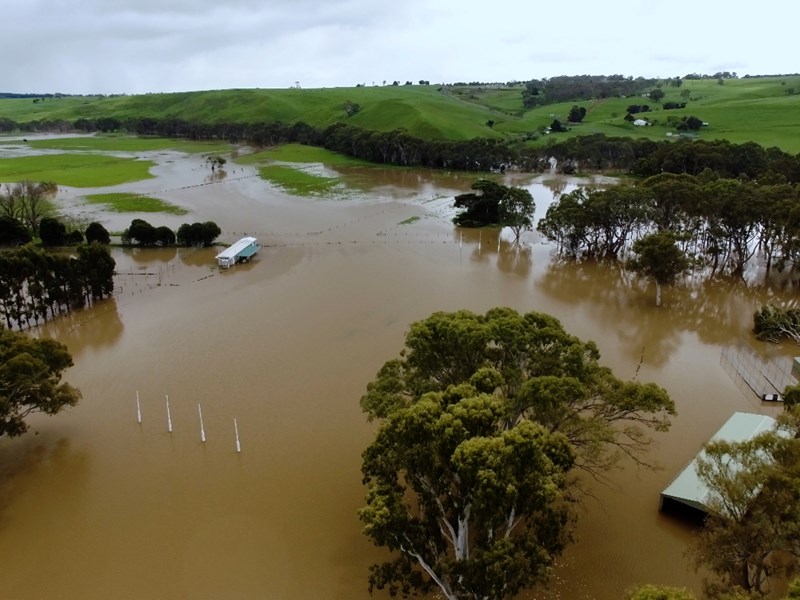
‘We've seen the impacts of the flood in Echuca. We've seen the impact of bushfires in Gippsland. We've seen the impact of drought,’ said Addison.
She believes events like this raise the need for a strong and diversified network of produce areas, which can withstand shocks to supply.
‘You need to make sure that you've got your food supply spread across the state to really ensure that we won't go hungry.’
Andrew Holman, a dairy farmer from Gippsland, has personal experience with the issues confronting the Committee, having been on his family farm for five decades.
‘If I have enough money I can actually prepare myself for climate change. I can turn around and either stockpile feed, I can turn around and have enough water on hand and all that type of stuff, and I can take the troughs and peaks and all the rest of it with it,’ he told the Committee during a public hearing in Morwell.
‘But if I am trying to do it and I am only paying the bills on a month-to-month basis, there is not enough fat in the system to actually make it happen,’ he said.
‘If you look at it now and you were to ask a lot of farmers what sort of debt level they are carrying per cow in a dairy situation, some of them are carrying so much debt that the only way out is to sell the farm.’
His son Sterling, whose passion for farming and commitment to fulfilling his family's legacy was evident during the hearing, is studying agriculture in the hopes of one day taking over the family farm.
‘I have been on the farm for all 18 years of my life,’ he said. ‘It has just been something I have always loved doing.’
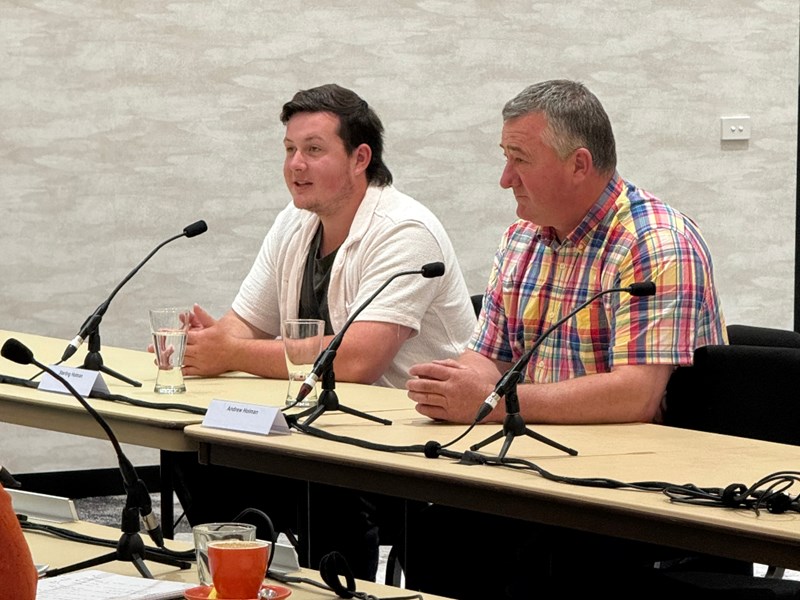
But unfortunately, fewer young people among those Sterling’s age are pursuing a career in the farming sector.
‘It is true that in our local area there would be about two of us of my age that would be really coming into farming soon, so it would be really a challenge to try to get some new people into farming in the future,’ he said.
This fact is something Cameron is acutely aware of, as the Member for Morwell in the Legislative Assembly.
‘The farms are handed on from generation to generation and the next generation is sort of not wanting to take on the farms,’ he said. ‘So where does it leave the current day farmer who's, you know, 50, 60 years of age?
‘Where is our workforce going to come from when this generation of farmers and people that supply our food are too old to do it anymore?'
Current day farmers are eager for younger generations to be encouraged and supported into the agricultural industry. A recent survey conducted by the Committee revealed that government support for young people to gain training in the industry is a highly desired action from current farmers to increase agricultural productivity.
Firsthand accounts from farmers who responded to the survey reveal that the trend of urban sprawl has made it more difficult for them to manage biosecurity risks, move farm equipment around their land, and even access their land at all.
They are concerned that current planning controls are inappropriate for agricultural land.
And they want greater protection for farmland along fringe areas, limits on the subdivision of farmland, as well as ensuring a balance with priorities such as finding land for housing.
‘They've all got different ideas and scenarios and there's some smart cookies out there,’ Cameron remarked.
Above all, there is a strong desire for Victorians to be eating locally produced fresh food for decades to come.
Find out more about the parliamentary inquiry into securing the Victorian food supply from the Committee's website.
About the Author

Spud Harrap
A participant in the Parliament Express program conducted by the Parliament of Victoria in partnership with Express Media. The program provided mentoring and engagement experiences, leading to a series of articles written by young Victorians for the Victorian Parliament's website.